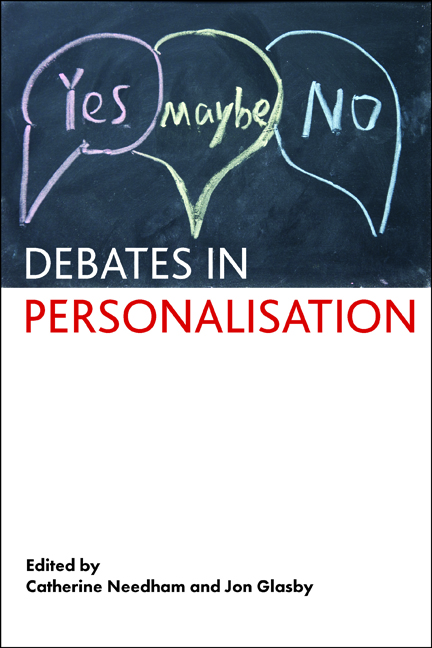Book contents
fifteen - Personal health budgets: a threat to the NHS?
Published online by Cambridge University Press: 04 March 2022
Summary
When Norman Lamb, Minister for Care and Support, announced to Parliament the introduction of a right to ask for a personal health budget (Lamb, 2013), he said it would “… go further towards our goal of providing greater personalisation within our NHS”.
He thus saw a personal health budget (PHB) as a means to an end, not an end in itself. By not declaring any alternative definition of the word ‘personalisation’, we can deduce that he was applying the word in its common usage. The Oxford English Dictionary defines the word as ‘designing something to meet someone's requirements’.
The NHS reminds us that the founding principles of the NHS were and remain (NHS Choices, 2013):
• that it meet the needs of everyone;
• that it be free at the point of delivery;
• that it be based on clinical need, not ability to pay.
Personalisation, understood in the common sense of the word, poses no threat to these principles. On the contrary, there is an argument that the ‘one-size-fits-all’ delivery systems into which people have to fit – the antithesis of personalisation – contravene the principles, as the service provided to the person is not based on their real needs.
There is, however, a serious question as to whether the Minister is right in claiming that PHBs will promote personalisation. His confidence has two sources. The first is social care, which has been delivering personal budgets (PBs) since 2008. Sector and political leaders believe that PBs are such a certain route to personalisation that the terms are used interchangeably. The president of the Association of Directors of Adult Social Services (ADASS, 2013b), responding to the news that the target for the number of people said to have a personal budget by 2013 (70%) had been met said that the service was now ‘providing personalised social care services to well over two thirds of eligible individuals’.
The second source of information for the Minister is the evaluation of the PHB pilots, where people said to have a PHB enjoyed better outcomes than a control group that did not.
However, this chapter will set out the evidence that wrong lessons are being drawn and that the Minister's confidence is misplaced.
- Type
- Chapter
- Information
- Debates in Personalisation , pp. 133 - 142Publisher: Bristol University PressPrint publication year: 2014



